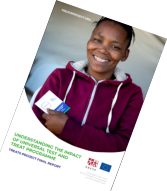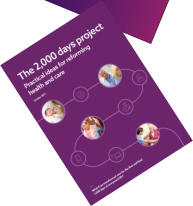





REPORT WRITING
I write major reports for public and private sector organisations and think
tanks. I help frame what the report will achieve, work with experts to compile
the evidence and then write the report itself, working through drafts with the
commissioners to ensure the final document reflects the organisation's
objectives. I write in a clear, fluent and enticing style and meet demanding
deadlines.
Global Impact Committee: Precision Health
Precision health, along with AI, will define 21st century healthcare. But it will
also widen health inequalities within and between countries unless
governments, healthcare providers, pharma and academia work together to
ensure everyone benefits. I authored The Risk of Imprecision with the
Beamtree Global Impact Committee, with support from international experts
such as Dr Ronald Cohn, president and CEO of the famous SickKids hospital
in Toronto, and Dr Pamela Moodley in South Africa.
Global Impact Committee: The Knowledge Crisis
I wrote The Knowledge Crisis with members of the Beamtree Global Impact
Committee such as former NHS medical director Prof Sir Bruce Keogh. It
exposes the national and global consequences of failing to turn healthcare
data into actionable insights and calls on governments, regulators and health
leaders to act now. Themes include: standardising and linking health data and
wider datasets so we have a fuller understanding of the consequences of
good and bad care; empowering patients through transparency; and
supporting clinical teams with actionable insights.
Global Impact Committee: AI and patient power
I worked with Prof Mark Britnell and the Beamtree Global Impact Committee
to write Human Intelligence: using AI to unleash patient power, which
highlights the success of some of the world’s most innovative healthcare
organisations in putting more power in the hands of patients, improving
access, reducing costs, enhancing the patient experience, improving
performance and saving clinician time. These systems have embraced the
concept of the intelligent health system, disrupting conventional care models
and leveraging their technological capabilities to transform what is possible.
Government’s review of bias in medical devices
I was technical editor for the government’s independent review of racial,
ethnic and other factors leading to biases in medical devices. It made
important recommendations on optical devices, addressing the risk of bias in
AI and the safe development of the rapidly growing area of polygenic risk
scores. My work included shaping the text, strengthening the clarity and
impact of the recommendations and ensuring the key points in the report
were evidenced.
Global Impact Committee: automation
The report More Time to Care: automation, digitisation and the workforce, for
the Beamtree Global Impact Committee, makes the case for exploiting AI and
other automation across healthcare’s clinical and nonclinical operations.
Automation enhances rather than diminishes the humanity of care by freeing
clinicians to focus their time, intellect and emotional energy on the patient.
Exploiting it on a massive scale is crucial to solving the global health
workforce crisis, and failing to do so will result in substantial patient harm,
which has the greatest impact on the communities that need healthcare most.
World Government Summit: transforming healthcare
I worked with the KPMG Healthcare team on this major KPMG report for the
World Government Summit called ‘Champions of Change’, on the role of
governments in leading healthcare transformation post-Covid. It was created
over many months and develops a wide range of ideas, including how to
tackle national and international health inequities, how to build resilient
healthcare systems which can withstand shocks such as a pandemic, and
how to develop digitally-powered healthcare systems.
Joint approaches to TB and HIV in Southern Africa
TREATS was a groundbreaking project involving around one million people in
21 communities in South Africa and Zambia, exploring whether a ‘universal
test and treat’ intervention for HIV known as PopART could reduce the
number of people becoming infected with TB. Working with the TREATS
team, ZPB Associates and The International Union Against Tuberculosis and
Lung Disease I interviewed 18 people leading the project and developed a
detailed understanding of the science and data behind it to write the final
report, published on World TB Day 2022.
Implementing the UK rare diseases framework
In 2021 the four UK governments published the UK Rare Diseases
Framework to improve care for the 3.5 million people living in the UK who will
be affected by a rare disease in their lifetime. The Rare Diseases Coalition,
encompassing clinical experts, professional bodies, patient groups and
industry, came together to work with the governments, the NHS and
stakeholders such as NICE to influence the development of the
implementation plans. I wrote the report bringing together all the expert
advice, including 50 recommendations.
Maximising the benefits of precision medicine
This report on the actions that government, the NHS and industry need to
take to accelerate development and maximise benefits of precision medicine
was based on discussions by an expert panel including Dame Professor Sue
Hill, Chief Scientific Officer for England, and Dr Richard Scott, Clinical
Director, Genomics England.
NHS workforce and talent development
Working with Public Policy Projects and former NHS England deputy medical
director Professor Mike Bewick, I wrote the report Workforce and Talent
Development laying out a series of policy recommendations across three key
areas of workforce policy: getting in (recruitment and diversity); getting on
(development and innovation); and getting through (wellbeing and retention).
It brings together ideas ranging from how the health and care system should
plan for future workforce needs to how it should develop digital skills and
support the mental wellbeing of its staff. The ideas were developed through a
series of roundtables with a wide range of experts from across the health and
care system.
Digital transformation during the pandemic
The speed and ingenuity of the NHS’s response to the Covid-19 pandemic
presented a unique opportunity to understand how successful digital
transformation can be delivered quickly and at scale. In collaboration with the
Health Innovation Network – the Academic Health Science Network for south
London – and digital innovators Sitekit Applications I listened to the stories of
NHS staff who have been making this extraordinary acceleration in digital
transformation a reality, to identify the behaviours and cultures that drove
success. The result was the report Liberate to Innovate.
Embedding universal vaccination in the UK
I worked with Public Policy Projects to produce the report Embedding the
Universal Vaccination Ecosystem in the UK, which identifies national and
global priorities for vaccine policy to protect us at every stage of our lives, and
discusses the lessons to be learned from the Covid-19 pandemic.
Out of Hospital Care Forum
Healthcare leaders supported by Healthcare at Home came together to
discuss practical ways that local health economies can develop community-
based healthcare services. The report addressed issues such as meeting
demand for primary care with the current workforce and developing a more
balanced understanding of the benefits and risks of hospital admission,
particularly for the frail elderly.
Brexit Advisory Commission
Working with the Brexit Advisory Commission for Public Services, established
by public sector finance institute CIPFA, I wrote a detailed analysis of the
likely impact of Brexit on the public sector workforce. I compared seven
potential outcomes of the withdrawal negotiations with the needs of the public
sector, and identified the best choice for UK public services.
The 2000 Days Project
Public and private sector healthcare leaders came together to explore how
NHS reform could be re-energised to put the citizen and community at the
heart of decision-making, bring joy back to the workplace and create a culture
in which innovation thrived.
Working with ZPB Associates, I brought their ideas together in The 2000 Days
Project, a report which explores radical reform of primary care and community
services through the lens of the first and last 1000 days of our lives. It was
launched at the King’s Fund and Cambridge Health Network.
Building Financial Resilience
CIPFA commissioned me to write a report for local government finance
directors identifying the warning signs of a local authority at serious risk of
financial failure, and explaining the key actions which would strengthen the
organisation’s long-term security.
The Winter’s Tale
The Winter’s Tale, for the Institute of Healthcare Management, used personal
stories from health and care professionals working in and around emergency
departments to reveal how systems thinking, teamwork and leadership can
deliver an outstanding service under pressure.
The report sought to understand what separates emergency departments
which manage to cope with large numbers of patients from those which slide
into crisis.
Swimming Together or Sinking Alone
Swimming Together or Sinking Alone, for the Institute of Healthcare
Management, was based on revealing interviews with senior health and local
government leaders on what was really happening inside local moves to
develop integrated care. It helps leaders understand the values, culture and
skills they need to survive and thrive as the NHS tries to change from
organisations working in silos to local health and care networks focussed on
the needs of patients and populations. It was widely praised and formed the
centrepiece of a major conference.
Local Government Finance Commission
The Local Government Association and CIPFA established the Independent
Commission on Local Government Finance to recommend a programme of
government reforms. I worked with the commission to draft its interim report,
Public Money, Local Choice, and its final report, Financing English
Devolution. Several of the report’s recommendations have since been
reflected in the government’s devolution policies.
The Revolution will be Improvised
The Revolution will be Improvised draws on insights from 25 multi-agency
programmes to identify what makes or breaks collaboration and service
transformation. The programmes were part of the Local Vision initiative,
backed by the Local Government Leadership Centre and the NHS, which is
dedicated to transformation through system leadership.
NHS Clinical Commissioners manifesto
NHS Clinical Commissioners published Making Change Happen to influence
national and local government, system leaders, policymakers and politicians.
It outlined what changes needed to be made to enable clinical commissioning
groups to reform the NHS.
Future Homes Commission
I edited the final report of the commission, established by the Royal Institute
of British Architects to recommend reforms to every aspect of UK housing –
from the way homes are built to how they are designed and funded. It
received extensive media coverage.
King’s Fund report on leadership
I wrote Leadership and Engagement for Improvement in the NHS based on
papers commissioned from national and international experts. It
demonstrates how engaging clinical staff in leading improvement raises
standards of care, while engaging patients produces better outcomes and
uses resources more effectively. It was launched at the King’s Fund’s second
annual Leadership and Management Summit by its then chief executive,
Professor Chris Ham.
Commission on Dignity in Care
I wrote the consultation document and final report for the Commission on
Dignity in Care, established by the NHS Confederation, Age UK and Local
Government Association to identify the causes of poor care of older people in
hospitals and care homes. Over nine months I attended the evidence
sessions, helped frame the recommendations and produced successive
drafts.
The consultation document received huge media coverage and its
recommendations attracted extensive support from health and social care
organisations. I then worked with the commission to incorporate ideas from
the 230 responses in the final report, Delivering Dignity.
“Richard combines
strong collaboration
skills and expert
knowledge of health and
local government with a
fantastic ability to explain
it simply and clearly in
language accessible to
professionals and the
public.”
Louise Fish,
Commission on
Dignity in Care

Public Policy Media
Richard Vize

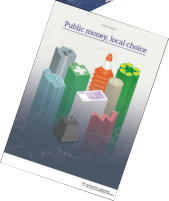

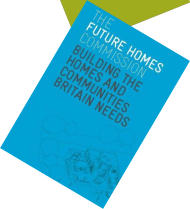



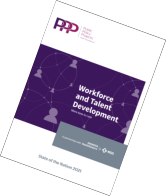




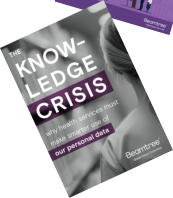
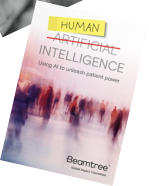
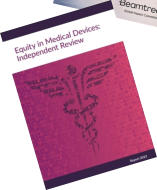



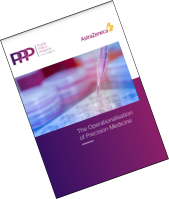
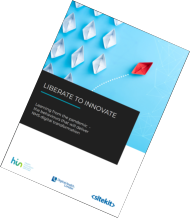
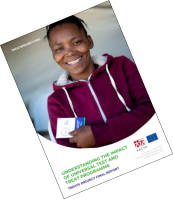










REPORT WRITING
I write major reports for public and private sector organisations
and think tanks. I help frame what the report will achieve, work
with experts to compile the evidence and then write the report
itself, working through drafts with the commissioners to ensure
the final document reflects the organisation's objectives. I write
in a clear, fluent and enticing style and meet demanding
deadlines.
Global Impact Committee: Precision Health
Precision health, along with AI, will define 21st century
healthcare. But it will also widen health inequalities within and
between countries unless governments, healthcare providers,
pharma and academia work together to ensure everyone
benefits. I authored The Risk of Imprecision with the Beamtree
Global Impact Committee, with support from international
experts such as Dr Ronald Cohn, president and CEO of the
famous SickKids hospital in Toronto, and Dr Pamela Moodley in
South Africa.
Global Impact Committee: The Knowledge
Crisis
I wrote The Knowledge Crisis with members of the Beamtree
Global Impact Committee such as former NHS medical director
Prof Sir Bruce Keogh. It exposes the national and global
consequences of failing to turn healthcare data into actionable
insights and calls on governments, regulators and health
leaders to act now. Themes include: standardising and linking
health data and wider datasets so we have a fuller
understanding of the consequences of good and bad care;
empowering patients through transparency; and supporting
clinical teams with actionable insights.
Global Impact Committee: AI and patient power
I worked with Prof Mark Britnell and the Beamtree Global
Impact Committee to write Human Intelligence: using AI to
unleash patient power, which highlights the success of some of
the world’s most innovative healthcare organisations in putting
more power in the hands of patients, improving access,
reducing costs, enhancing the patient experience, improving
performance and saving clinician time. These systems have
embraced the concept of the intelligent health system,
disrupting conventional care models and leveraging their
technological capabilities to transform what is possible.
Government’s review of bias in medical
devices
I was technical editor for the government’s independent review
of racial, ethnic and other factors leading to biases in medical
devices. It made important recommendations on optical
devices, addressing the risk of bias in AI and the safe
development of the rapidly growing area of polygenic risk
scores. My work included shaping the text, strengthening the
clarity and impact of the recommendations and ensuring the
key points in the report were evidenced.
Global Impact Committee: automation
The report More Time to Care: automation, digitisation and the
workforce, for the Beamtree Global Impact Committee, makes
the case for exploiting AI and other automation across
healthcare’s clinical and nonclinical operations. Automation
enhances rather than diminishes the humanity of care by
freeing clinicians to focus their time, intellect and emotional
energy on the patient. Exploiting it on a massive scale is crucial
to solving the global health workforce crisis, and failing to do so
will result in substantial patient harm, which has the greatest
impact on the communities that need healthcare most.
World Government Summit: transforming
healthcare
I worked with the KPMG Healthcare team on this major KPMG
report for the World Government Summit called ‘Champions of
Change’, on the role of governments in leading healthcare
transformation post-Covid. It was created over many months
and develops a wide range of ideas, including how to tackle
national and international health inequities, how to build
resilient healthcare systems which can withstand shocks such
as a pandemic, and how to develop digitally-powered
healthcare systems.
Joint approaches to TB and HIV in Southern
Africa
TREATS was a groundbreaking project involving around one
million people in 21 communities in South Africa and Zambia,
exploring whether a ‘universal test and treat’ intervention for
HIV known as PopART could reduce the number of people
becoming infected with TB. Working with the TREATS team,
ZPB Associates and The International Union Against
Tuberculosis and Lung Disease I interviewed 18 people leading
the project and developed a detailed understanding of the
science and data behind it to write the final report, published on
World TB Day 2022.
Implementing the UK rare diseases framework
In 2021 the four UK governments published the UK Rare
Diseases Framework to improve care for the 3.5 million people
living in the UK who will be affected by a rare disease in their
lifetime. The Rare Diseases Coalition, encompassing clinical
experts, professional bodies, patient groups and industry, came
together to work with the governments, the NHS and
stakeholders such as NICE to influence the development of the
implementation plans. I wrote the report bringing together all
the expert advice, including 50 recommendations.
Maximising the benefits of precision medicine
This report on the actions that government, the NHS and
industry need to take to accelerate development and maximise
benefits of precision medicine was based on discussions by an
expert panel including Dame Professor Sue Hill, Chief Scientific
Officer for England, and Dr Richard Scott, Clinical Director,
Genomics England.
NHS workforce and talent development
Working with Public Policy Projects and former NHS England
deputy medical director Professor Mike Bewick, I wrote the
report Workforce and Talent Development laying out a series of
policy recommendations across three key areas of workforce
policy: getting in (recruitment and diversity); getting on
(development and innovation); and getting through (wellbeing
and retention). It brings together ideas ranging from how the
health and care system should plan for future workforce needs
to how it should develop digital skills and support the mental
wellbeing of its staff. The ideas were developed through a
series of roundtables with a wide range of experts from across
the health and care system.
Digital transformation during the pandemic
The speed and ingenuity of the NHS’s response to the Covid-
19 pandemic presented a unique opportunity to understand
how successful digital transformation can be delivered quickly
and at scale. In collaboration with the Health Innovation
Network – the Academic Health Science Network for south
London – and digital innovators Sitekit Applications I listened to
the stories of NHS staff who have been making this
extraordinary acceleration in digital transformation a reality, to
identify the behaviours and cultures that drove success. The
result was the report Liberate to Innovate.
Embedding universal vaccination in the UK
I worked with Public Policy Projects to produce the report
Embedding the Universal Vaccination Ecosystem in the UK,
which identifies national and global priorities for vaccine policy
to protect us at every stage of our lives, and discusses the
lessons to be learned from the Covid-19 pandemic.
Out of Hospital Care Forum
Healthcare leaders supported by Healthcare at Home came
together to discuss practical ways that local health economies
can develop community-based healthcare services. The report
addressed issues such as meeting demand for primary care
with the current workforce and developing a more balanced
understanding of the benefits and risks of hospital admission,
particularly for the frail elderly.
Brexit Advisory Commission
Working with the Brexit Advisory Commission for Public
Services, established by public sector finance institute CIPFA, I
wrote a detailed analysis of the likely impact of Brexit on the
public sector workforce. I compared seven potential outcomes
of the withdrawal negotiations with the needs of the public
sector, and identified the best choice for UK public services.
The 2000 Days Project
Public and private sector healthcare leaders came together to
explore how NHS reform could be re-energised to put the
citizen and community at the heart of decision-making, bring
joy back to the workplace and create a culture in which
innovation thrived.
Working with ZPB Associates, I brought their ideas together in
The 2000 Days Project, a report which explores radical reform
of primary care and community services through the lens of the
first and last 1000 days of our lives. It was launched at the
King’s Fund and Cambridge Health Network.
Building Financial Resilience
CIPFA commissioned me to write a report for local government
finance directors identifying the warning signs of a local
authority at serious risk of financial failure, and explaining the
key actions which would strengthen the organisation’s long-
term security.
The Winter’s Tale
The Winter’s Tale, for the Institute of Healthcare Management,
used personal stories from health and care professionals
working in and around emergency departments to reveal how
systems thinking, teamwork and leadership can deliver an
outstanding service under pressure.
The report sought to understand what separates emergency
departments which manage to cope with large numbers of
patients from those which slide into crisis.
Swimming Together or Sinking Alone
Swimming Together or Sinking Alone, for the Institute of
Healthcare Management, was based on revealing interviews
with senior health and local government leaders on what was
really happening inside local moves to develop integrated care.
It helps leaders understand the values, culture and skills they
need to survive and thrive as the NHS tries to change from
organisations working in silos to local health and care networks
focussed on the needs of patients and populations. It was
widely praised and formed the centrepiece of a major
conference.
Local Government Finance Commission
The Local Government Association and CIPFA established the
Independent Commission on Local Government Finance to
recommend a programme of government reforms. I worked
with the commission to draft its interim report, Public Money,
Local Choice, and its final report, Financing English Devolution.
Several of the report’s recommendations have since been
reflected in the government’s devolution policies.
The Revolution will be Improvised
The Revolution will be Improvised draws on insights from 25
multi-agency programmes to identify what makes or breaks
collaboration and service transformation. The programmes
were part of the Local Vision initiative, backed by the Local
Government Leadership Centre and the NHS, which is
dedicated to transformation through system leadership.
NHS Clinical Commissioners manifesto
NHS Clinical Commissioners published Making Change
Happen to influence national and local government, system
leaders, policymakers and politicians. It outlined what changes
needed to be made to enable clinical commissioning groups to
reform the NHS.
Future Homes Commission
I edited the final report of the commission, established by the
Royal Institute of British Architects to recommend reforms to
every aspect of UK housing – from the way homes are built to
how they are designed and funded. It received extensive media
coverage.
King’s Fund report on leadership
I wrote Leadership and Engagement for Improvement in the
NHS based on papers commissioned from national and
international experts. It demonstrates how engaging clinical
staff in leading improvement raises standards of care, while
engaging patients produces better outcomes and uses
resources more effectively. It was launched at the King’s Fund’s
second annual Leadership and Management Summit by its
then chief executive, Professor Chris Ham.
Commission on Dignity in Care
I wrote the consultation document and final report for the
Commission on Dignity in Care, established by the NHS
Confederation, Age UK and Local Government Association to
identify the causes of poor care of older people in hospitals and
care homes. Over nine months I attended the evidence
sessions, helped frame the recommendations and produced
successive drafts.
The consultation document received huge media coverage and
its recommendations attracted extensive support from health
and social care organisations. I then worked with the
commission to incorporate ideas from the 230 responses in the
final report, Delivering Dignity.
Public Policy Media
Richard Vize
